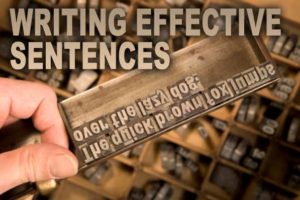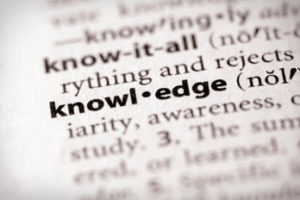
Eight Characteristics of Good Writing
How important is it for a writer to be able to discern the difference between good writing and bad writing? Pretty important, if you ask me. I know some writers aren’t concerned with quality. In today’s do-it-yourself and get-it-done-fast world, quality plays second fiddle to quantity. Who cares if your books are full of typos,…Read More

Five Grammar Habits Every Writer Should Adopt
Can you imagine a nutritionist who eats exclusively at fast food restaurants? A personal trainer who never exercises? A writer who can’t be bothered with grammar, spelling, and punctuation? In most professions, best practices and tools of the trade are mandatory. If you want to be a lawyer, you must pass the Bar exam. If…Read More

What Are Beta Readers, and Should You Use Them?
By the time you’ve finished your manuscript and are ready to show it to agents and editors — or self-publish and put it in front of readers — you have almost certainly lost the ability to view your own work with a critical eye. While there are some tactics you can use to self-edit, you…Read More

Are You Writing Effective Sentences?
Nothing ruins a great piece of writing like weak words and poorly structured sentences. We’ve all been there. You’re working through your first draft or perhaps making your way through revisions. The scene plays out in your mind like a movie. But when you try to put it into words, it just doesn’t flow right. In…Read More

How to Increase Your Writing Productivity
It’s not easy to find time to write. Even professional writers get caught up in paperwork and marketing and have to scramble to get the actual work of writing done. But with careful planning and better time management, we can all learn how to produce more writing. Here are seven writing productivity tips that will…Read More

10 Reasons Writers Should Master Grammar
Each writer has a different perspective on how accurate grammar needs to be. Some are sticklers who insist on adhering to the highest standards of the literary order. Others are comfortable taking creative liberties and believe that breaking the rules is an art unto itself and a practice that should be embraced. Me? I’m somewhere…Read More

Improve Your Writing with Poetry
In the world of writing, one form stands out as different from all the rest: poetry. Poetry is not bound by the constraints of sentence and paragraph structure, context, or even grammar. In the magical world of poetry, you can throw all the rules out the window and create a piece of art, something that is…Read More

From 10 Core Practices for Better Writing: Revising Your Writing
I’d like to share a few excerpts from my book 10 Core Practices for Better Writing. “Chapter Three: Revision” explores the importance of revising your work and includes tips and ideas for editing and proofreading. Enjoy! “The best writing is rewriting.” – E.B. White We use the terms first draft or rough draft when we…Read More

The All-Important Relationship Between Grammar and Writing
Today I’d like to share an excerpt from my book 10 Core Practices for Better Writing. This excerpt is from “Chapter Four: Grammar,” which explores the relationship between grammar and writing and includes tips and resources for mastering grammar. Enjoy! Grammar and Writing Grammar, spelling, and punctuation are the most basic components of good writing. Grammatically…Read More

Daily Writing Leads to Better Writing
Today’s post is an excerpt from 10 Core Practices for Better Writing. This is from “Chapter Two: Writing.” Enjoy! “I only write when I am inspired. Fortunately I am inspired at 9 o’clock every morning.” – William Faulkner Ideally, you would write every day. Writers who come to the craft out of passion rarely have a…Read More



